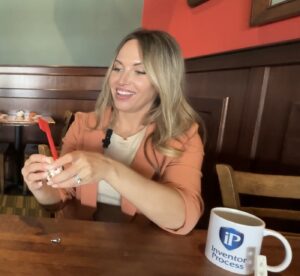6 Reasons Why Patent Searches Matter
Taking a new product idea from sketch to shelf starts with one essential step — a patent search and novelty assessment. You need to know your idea is truly novel. New. Distinguishably different from other inventions. A professional patent search and novelty assessment confirm this. We have 6 reasons why patent searches matter.
Before we go further, let’s define a term you’ll hear often when discussing patent searches, patent applications, and patent prosecution: prior art.
Prior art includes issued patents, expired patents, published patent applications, and existing products that relate to your concept. If it existed before your application was filed, it counts as prior art.
Here are six reasons why a quality patent search and novelty assessment are so important.
1. Avoiding Infringement
A patent search identifies prior art related to your idea. This helps you avoid infringing on another person’s or company’s intellectual property — a mistake that can lead to costly legal disputes. Without this step, you could unknowingly violate someone else’s patent and find out only after you’ve invested significant resources.
According to Harvard Library, “The most common reason to conduct a comprehensive prior art patent search is to make sure no other similar invention already exists.”
2. Assessing Patentability
A thorough patent search determines if your invention is both novel and non-obvious compared to prior art. The U.S. Patent & Trademark Office requires that:
-
The invention works.
-
A clear description exists on how to make and use it.
-
It is truly new.
-
It is not obvious in light of prior art.
A patent search reveals whether your invention meets these standards — and whether a patent is likely to be granted.
3. Understanding the Market Landscape
Curious about your competition? You should be. A patent search provides insight into existing innovations and emerging technologies in your field. This helps you understand the competitive landscape and spot opportunities for differentiation.
Pro Tip: Competition can be healthy. For every Coke, there’s a Pepsi. The key is to ensure your product stands out.
4. Strengthening Patent Applications
Search results often reveal gaps and weaknesses in existing patents. You can use this knowledge to show how your invention is unique and better than what’s already out there. A stronger, more detailed application improves your chances of approval and gives your product an edge in the market.
5. Informed Decision-Making
Understanding the prior art landscape helps you refine your invention and develop a smart intellectual property strategy. You might find alternative approaches, new technologies, or even potential collaborators based on what you discover.
6. Avoiding Investment Risks
Patent applications are costly and time-intensive. Filing one without knowing your chances of success can waste both money and momentum. Many investors require a patent search and novelty assessment before funding a project. By investing in these steps early, you reduce financial risk and increase your appeal to backers.
John Ferrell, Esq., put it well: “A patent search is a bit like purchasing insurance. If finding out your invention is not patentable after the application is filed would create a financial or business hardship, then it’s worth it to have a patent search performed prior to filing a patent application.”
Final Thoughts
A patent search combined with a novelty assessment forms the foundation of both the patenting and product launch process. They confirm your invention’s uniqueness and its potential in the marketplace.
Just because you’ve never seen your concept advertised or sold doesn’t mean something similar isn’t sitting in the patent archives. The team at Inventor Process, Inc. recommends finding out before you invest your time, money, and passion.
If you have questions about patent searches, novelty assessments, or anything invention-related, email me at Info@InventorProcess.com. Helping inventors is what we do best.
By: Edward Ayres





